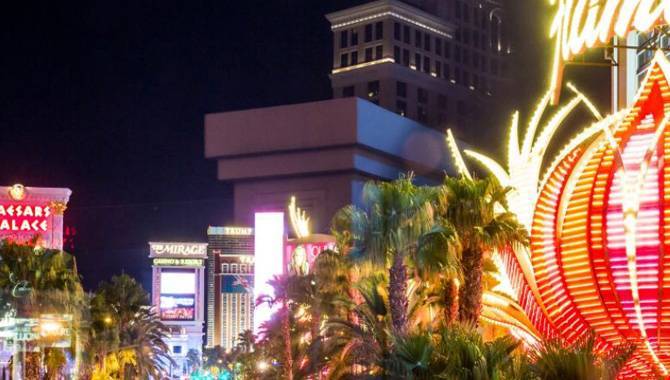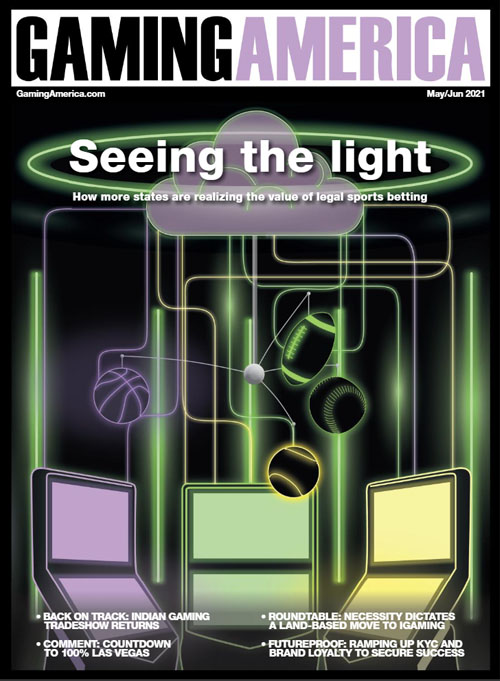
A conversation that allegedly took place a couple of decades ago increasingly comes to mind when thinking about Las Vegas. It is said that when media mogul Ted Turner acquired World Championship Wrestling, he called up World Wrestling Federation CEO Vince McMahon and said, “Vince, I’m in the wrestling business.”
“Good for you,” supposedly replied Vince, “I’m in the sports entertainment business.”
Last September, at the height of the pandemic, I was part of a group of academics and professionals that set out to understand customer attitudes and behaviours related to a post-Covid Las Vegas. The group surveyed over 1,000 people and identified two clear attributes within the customer sample.
A large majority of customers were eager to return within the next 12 months. However, for many, there was a concern that Las Vegas no longer represented good value, and they expressed the hope that Covid would force the city to return to that kind of appeal.
Together, these two apparent non-sequiturs have given me pause for thought in recent weeks.
What business are you in?
This used to be a standard question that my MBA student groups asked when meeting gaming executives, and frequently the answer they gave would tell a lot about the company that they worked for. Responses ranged from big data marketing companies, to financial services businesses, to branded development operators and many more. The truth is that gaming companies are complex operational entities, but fundamentally they are all in the hospitality sector.
Hospitality is about service, range and delivery of offering, high levels of customer engagement, developing environments that elicit an emotional response, and developing experiences that are memorable and engaging. As a further consideration, hospitality within Las Vegas is a highly competitive environment, so while tactical responses can deliver short term success, they are highly replicable and do not deliver sustainable competitive advantage. The clear goal of hospitality businesses is customer loyalty, as loyalty and location are the only drivers of strategic competitive advantage. Within a multifaceted business environment like Las Vegas, it’s clear that there are many different customers and many different types of loyalty.
A question of loyalty
John Bowen and Stowe Shoemaker, in their 1998 article in Cornell paper, Loyalty: A Strategic Commitment, note that customers are loyal for two primary reasons: benefits and trust. The accumulation of points in order to receive benefits, which I define as transactional loyalty, seeks to reward those customers who are the most valuable. It’s an incentive for the customer to spend, but there’s an element of pain to defect. A highly acclaimed industry figure once referred this to me as a bribery strategy and not a hospitality strategy. Nonetheless, it has been highly effective as a two-way platform to repeat business and capture customer data in order to garner customer insights for management decision making.
In my own research, as I have indicated in other columns, further loyalty drivers include implementing tribal and emotional aspects, including brands, to give customers a sense of belonging and identity alignment, functional strategies, which are design, delivery and amenity driven, and developing an aspirational model rooted in personalized engagement and aesthetic. However, each of these aspects is a derivative, with the hospitality experience as the means, and loyalty as the end.
The second aspect cited by Bowen and Shoemaker is that of trust. The authors quote Robert Shaw, who defines trust as “the belief that those on whom we depend will meet our expectations.” The authors further note that in order to build that trust, hotel operators must act with integrity, their employees must be empowered, that the operators must not exercise opportunistic behaviour to gouge customers and must not put inconveniences in the way of customers enjoyment, like “petty hotel policies and procedures,” which are cited as impediments to trust.
The relevance of citing this work from over two decades ago is that Dr. Shoemaker is now Dean of The William F. Harrah College of Hospitality at The UNLV, provider of the majority of college educated employees working in the Las Vegas gaming industry, and his research and teaching is particularly relevant today.
Trust me, I’m a professor
The dichotomy of hospitality operators is how to maximize bottom-line revenues while delivering an optimum and most efficient hospitality experience. Former Wynn Resorts CEO Steve Wynn pronounced that if you deliver the best, the profits will come, but that belies the highly sophisticated study into operational detail and preservation of margins that his company performed for decades. Likewise, the rigorous scientific research into customer behaviour, led by former Harvard professor Gary Loveman as CEO of Harrah’s, enabled their expansion in the 2000s, and is perhaps the primary case study in big data analytics and real-world delivery that was emulated by many other businesses in this and other sectors.
Our own research in a post-Covid Landscape articulated that customers were seeing a diminution of value in the Las Vegas experience. However, on closer inspection, this was only the expression of sentiment that the respondent recognized. What is really being reflected, however, is not a problem with value, but is the diminution of trust in many of the Las Vegas operators, based on unmet expectations and a collection of thousands of individual experiences.
And it is understandable to see why: Triple-zero roulette (at 35-1 pay rates), 6/5 blackjack, resort fees, car parking charges (now reversed by certain operators, but still in place by others), tightening slot holds, hidden fees, supplemental charges and a host of other gripes met by customers, with complaints heavily aired out on discussion boards, podcasts, blogs and social media, and featured in many direct conversations and feedback between visitors and executives.
Those of us in the industry can rightly defend the value proposition, but in truth that is not what is being called into question. Neither are these front-line delivery problems, but tactical decisions made by company leadership, inspired by practices in other companies or industries that have proven to increase revenue and short-term shareholder value.
A cursory glance at professors McGovern and Moon’s 2007 Harvard paper, Companies and the Customers Who Hate Them, highlights the dangers of these tactics.
The authors write, “Any CEO focused on long term sustainability would be wise to identify these strategies and begin dismantling them. Clearly such practices work in the short term as theprofits of certain practitioners attest, but as competitors emerge to exploit customers’ pent-up hostility, companies that bullied their customers in the ways described here should expect a punishing response sooner or later.”
Recent data shows that McGovern and Moon’s thesis may already have resonance with respect to Las Vegas’ customers. In 2016, 27% of all Las Vegas visitors came from southern California. However by 2019 this was 21%. That is over 6 million fewer customers from the most important feeder market, much of this drive-in. 2020 will be an outlier for obvious reasons, but with increased competition, this should be a big, red warning sign flashing for Strip operators.
This loss of trust isn’t systemic across Las Vegas. The authentic and value operators seen in Downtown Las Vegas have avoided many of the revenue driving tactics seen on The Strip, with a notable variance in outcomes; between 2011 and 2019 gaming revenue Downtown increased by 39.3% compared to an 8.9% increase on The Strip, albeit from a lower base.
What we can surmise is that the tactics used to drive RevPAR (revenue per available room) by some Las Vegas operators is severely eroding the trust of the customers. Moreover, it’s out of sync with the strategy of a hospitality business, if indeed hospitality is the sector that Las Vegas gaming operators determine that they are in.
Moving forward, if we expect customers to get in a car or an airplane and travel for several hours to come to the Nevada desert, then we have to resolve these matters of trust, especially as the competitive pressures on Las Vegas are set to increase with further deregulation in other states, with newer, shinier resorts challenging those in this city.
Stop. Look. Listen. Think.
Ted Turner ran WCW from 1989 to 2000. It lost hundreds of millions of dollars during his ownership (including over $60m in one particular year) and was acquired by main rival WWE for $3m. The market cap of WWE at press time is over $4bn. It's vital to understand what business you are in.
Visitors are promising to come back to Las Vegas, but there are serious trust issues. Will the Post-Covid rebound be a catalyst for generational growth or just a one and done? We need to understand not just what customers are saying, but what they mean and why they are feeling a particular way before it’s too late.
Prior to the anticipated post-Covid demand surge in 2021-2022, we should take a moment and review our business models, the drivers of competitive advantage and understand what made this city successful. If we just see the forthcoming period of excess demand as a cash grab, we’ll miss an historic opportunity and potentially see an accelerating long-term decline. Strategic competitive advantage is gained by customer loyalty. Trust is a driver of loyalty.
If companies are not actively and continually building customer trust, then, like Ted Turner, they don’t understand what business they are in. Gaming operators may self-title as entertainment companies, but as far as the customer is concerned, they are hospitality businesses, and unless loyalty is at the core, especially in a competitive environment such as Las Vegas, then the customer is always free to go elsewhere or stay at home. Trust me, many already are.

